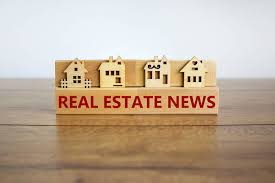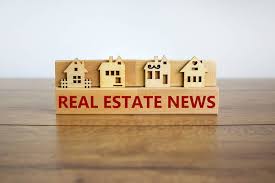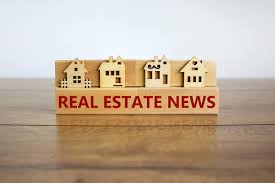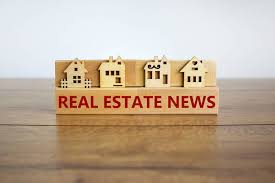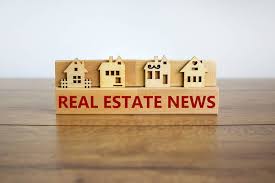The State of Real Estate in Nigeria and The Possibilities
Every economic and political factor in Nigeria indicates that the Real Estate ecosystem can only expand for both private and public investors. 2019 was an excellent year for Nigeria’s housing market, with demand rising by double-digit figures. Property listing inquiries surged 72%, according to a year-end report by Nigeria Property Centre.
In 2020, Nigeria moved up 15 places on the Jones Lang LaSalle’s Global Real Estate Transparency Index, from its 83rd position in 2016 to 68th out of 99 measured markets, clearly showing an improvement in ease of doing business.
Following the set-up of the Nigeria Mortgage Refinance Company (NMRC) In 2012 by President Goodluck Jonathan, US$300 million from the World Bank was made available by the NMRC for mortgage lending banks with increased access to long-term funds aimed at facilitating more than 450,000 loans for low-cost housing units over the next five years. But that is only half the story.
According to a report by PwC, the housing deficit in Nigeria has worsened over the last 30 years. The deficit increased from14 million in2010 to over 17 million in 2021, and the provision of 100,000 to 700,000 housing units per year is required for the next 20 years to bridge the gap. If housing must match population growth and urban expansion, according to the PwC report.
In Lagos alone, the housing deficit is estimated to be in the region of 2.5 million units.
While the federal government has a social housing initiative called Family Homes Funds (FHFL) aimed to invest about N1.3 Trillion to provide about 500,000 homes for low-income households by 2024; and the Lagos state government also has under the Lagos Home Ownership Mortgage Scheme, from 2016 started implementing different Rent-To-Own projects such as the Sir Michael Otedola Housing Estate, Odoragunshin, Epe; CHOIS City, Agbowa; Oba Adegboruwa Estate Igbogbo, Ikorodu; AlhajaAdetoun Mustapha Estate, Ojokoro; and Hon. Olaitan Mustapha Estate, Ojokoro, all aimed at providing accessible homes to Lagos residents, there is still a huge housing deficit that needs more than the government is presently doing.
However, the real estate market in Nigeria faces some challenges too, which intelligently engaged, can boost the market, provide needed value for homeowners, and high return on investment for the property investor.
1) The exorbitant cost of house construction.
Cement prices in Nigeria are the highest in the world, at about 30-40% higher than other African countries and world market prices.
It is costly to build a house in Nigeria. This is due to the high cost of skilled labor, high cost of building materials, and a terrible or inexistent infrastructure system.
It is pertinent to note that according to Former Finance Minister Ngozi Okonjo Iweala. At the same time, it costs about N13 million to build a three-bedroom house in South Africa; to build the same three-bedroom house in Nigeria, you will need upwards of N20 million.
2) High Cost of Property Registration.
Nigeria ranks among the worst globally concerning the cost of registering property and the ease of property registration.
It costs about 70% more than the average for Sub-Saharan Africa and almost three times the OECD average to register a property in Nigeria. According to the World Bank’s Doing Business 2020 report, Nigeria ranks at 183rd out of 190 countries. In Lagos State, property registration costs about 11.1% of the property’s value, with an average of 12 procedures, and can take as long as 105 days to complete. For the sake of comparison, in South Africa, registering a property costs at most 6.1% of the value of the property and requires only 33 days and no more than five procedures.
3) Limited Access to Mortgage.
While mortgage financing facilities are available, the criteria for qualification are steep.
A National Housing Fund managed by The Federal Mortgage Bank of Nigeria (FMBN) exists. Still, to qualify to access it, the prospective house owner needs to make a down-payment of 15% of the value of their desired property and make contributions with FMBN over a minimum of a period of six months. As a result, many prospective homeowners are unable to access this facility.
To show how new the facility is, it is pertinent to note that not more than 5% of the 13.7 million housing units in Nigeria are financed with a mortgage.
These challenges are real and constitute a significant inhibitor to accelerated homeownership by prospective homeowners. The challenges are also ones that cannot be effectively taken on by the government alone. It requires collaboration or partnership between the government and the private sector.
Now imagine what the landscape would look like if these identified challenges can be overcome by private-public partnerships.
A partnership that empowers private investors and developers to easily acquire, develop, and register property, as well as tax breaks or waivers given upon the facilitation of these needed infrastructures needed to make real estate development less cumbersome and less financially prohibitive.
A partnership that makes it easier for homeowners to access the mortgage financing facility, ensuring a faster uptake of developed property, as developed by private investors and developers.
A win-win partnership where the government, the private investors, and the homeowners come out as winners.
That is the partnership and possibility that the real estate industry in Nigeria needs to have.
source: The vanguard
Similar Topics
The Lagos State Government has commenced the demolition of illegal structures within the Lekki Free...
6 days ago Read MoreNigeria’s recently enacted Tax Act of 2025 (NTA 2025), which becomes effective on January 1,...
7 days ago Read MoreMember States of the United Nations Human Settlements Programme (UN-Habitat) have endorsed a new...
a month ago Read MoreNigeria Enters a New Tax Era Come January 2026, Nigeria’s property market will experience a...
a month ago Read MoreImproved Security and Diaspora Capital Drive Rebound The housing sector in Nigeria’s...
a month ago Read MoreThe Lagos State Government has announced that night-time repair works will take place on Ozumba...
2 months ago Read MoreThe Federal Government has suspended all previously approved, pending, and prospective applications...
3 months ago Read MoreThe Federal Government has successfully mobilised more than N70 billion in private capital...
4 months ago Read MoreThe Lagos State Government, through the Lagos State Physical Planning Permit Authority (LASPPPA),...
6 months ago Read MoreThe Federal Government has expanded the Abuja-Kaduna-Kano Road project to incorporate a direct...
6 months ago Read MoreThe Federal Capital Territory Administration (FCTA) has taken possession of Wadata Plaza, the...
6 months ago Read MoreDefaulters on FCT ground rent now have 14 days grace to pay up what they owe the FCT Administration...
6 months ago Read MoreUnprofessional practices by estate agents in major cities are significantly influencing the spike...
7 months ago Read MoreA Real estate development firm, Lifecard International Investment Company, has revealed that many...
7 months ago Read MoreDespite a fall in investment volumes from the 2021 peak, there is an ongoing desire for property...
7 months ago Read MoreThe Lagos State government has advised the leadership of the Nigerian Institution of Estate...
7 months ago Read MoreReal estate market dynamics such as construction cost, land, finance, government policies and taxes...
7 months ago Read MoreEvent Set to Celebrate Managers Who Shape Careers and Drive Organizational Growth Business...
8 months ago Read MoreGlobal Leaders to Converge in Lagos for Landmark Event Driving Urban Innovation and...
8 months ago Read MoreIn a bold move to redefine affordable luxury housing, Nigerian real estate giant Gtext Holdings has...
9 months ago Read More


